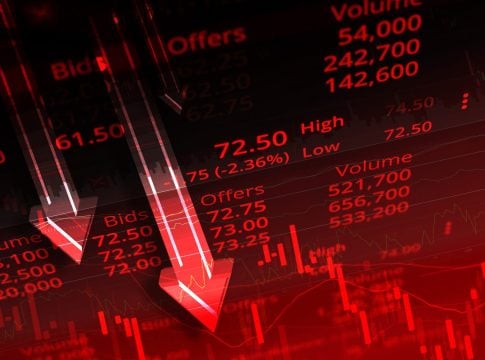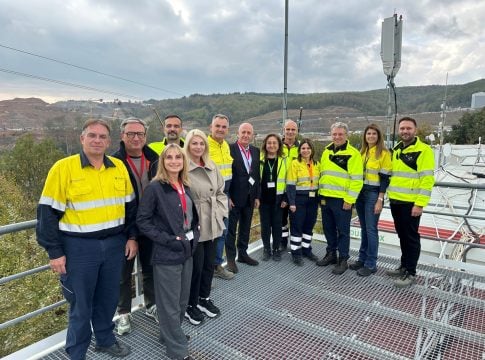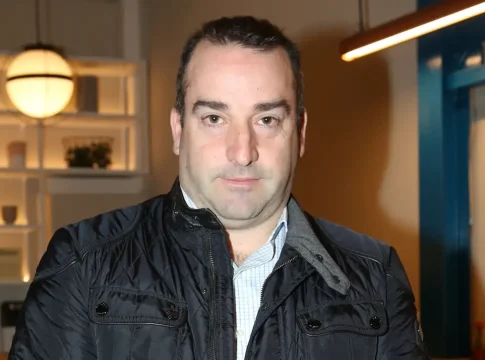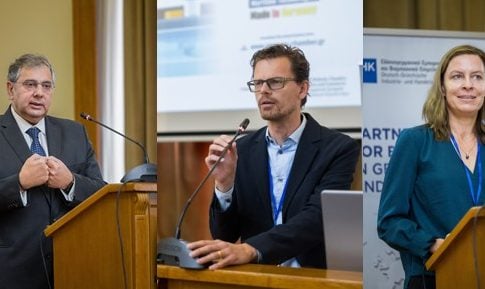By Antonis Tsimplakis, [email protected]
Shipping fuel suppliers are moving at the pace of the green transition. Shipyards are taking new orders for ships that can handle LNG, methanol and ammonia, but at the same time investments are still being made in traditional vessels and bunker vessels, as conventional fuels continue to meet most of the market’s needs.
Alexander Prokopakis, Executive Director of the International Bunker Industry Association (IBIA), points out that: “Despite concerns about whether there will be sufficient logistics to service these new ships with alternative fuels, the market has proven that it can adapt to its needs.” However, he stresses that there is currently ‘some scepticism as investment seems to be a little behind the projected demand’.
IBIA, adds, “strongly supports the shipping industry’s transition to net zero emissions, recognising the challenges but also the opportunities. The fuel supplier industry plays an important role, providing alternative fuels and technologies that will enable emission reductions. It is working to promote cleaner fuels such as LNG, biofuels, methanol and ammonia, and is working closely with international organisations to develop appropriate regulatory frameworks.”
In fact, these issues are expected to be discussed in detail at the IBIA Annual Convention, which will take place in Athens from 5 to 7 November 2024, and for which ¨N¨ is the communication sponsor. “The Convention will focus on sustainability, new fuel technologies and the regulatory challenges arising from the transition to net zero. It will also look at the geopolitical implications for the fuel market,” Alexander Prokopakis notes.
Regarding the implications for shipping of geopolitical developments, Prokopakis says that : “tensions often lead to fuel price fluctuations, increasing operating costs and putting a strain on fuel supply. In addition, sanctions imposed in Russia and other conflict areas directly affect fuel availability and trade routes, creating additional challenges for the industry. IBIA works with international stakeholders to provide guidance and support to its members, helping them to adapt to ever-changing conditions and address the challenges arising from these geopolitical developments. In recent months, with the help of our members, we have provided updates to the International Maritime Organization (IMO) on developments in the Red Sea region.”
– Who is the Organization and what is the role of IBIA (International Bunker Industry Association) for the shipping industry?
IBIA – International Bunker Industry Association is the voice of the global bunkers / marine energy industry, representing all stakeholders in the sector. Since 1992, IBIA has had a presence in over 68 countries with approximately 500 members, providing an international forum for issues related to shipping fuels. Our aim is to improve practices, knowledge, and professional training in the sector through educational programs, reliable information, and practical advice. We promote transparency, safety, and sustainability in ship fueling, representing industry interests at the international level and striving for practical and applicable regulations for the sustainable development of the shipping industry. IBIA serves as a bridge between different sides of the market and acts as a reference point for issues of safety, environment, and regulatory developments, closely collaborating with the International Maritime Organization (IMO).
– How does the Organization view the transition of shipping to net zero?
IBIA strongly supports the transition of shipping towards net zero emissions, recognizing both the challenges and opportunities. The fuel supply industry plays a significant role in providing alternative fuels and technologies that will allow for a reduction in emissions. IBIA is working to promote cleaner fuels such as LNG, biofuels, methanol, and ammonia while collaborating closely with international organizations to develop appropriate regulatory frameworks. Additionally, IBIA offers educational programs for the use of these fuels, both through online courses and in-perosn sessions. One of these programs will be presented at the global IBIA annual convention taking place in Athens from November 5 to 7, 2024, focusing on developments and challenges related to alternative fuels.
– What is the picture regarding new bunker ships, and are investments still being made in conventional bunker ships apart from alternative fuels?
The number and pace of new bunker vessels orders are not the same as those for ocean-going vessels. In recent years, there has been significant activity in the orders for ships using alternative fuels. Last year saw a significant increase in orders for ships that will run on methanol, and nearly 50% of the total capacity of new orders in recent years concerns vessels that will use alternative fuels. We are seeing new orders for ships capable of handling LNG, methanol, and ammonia, but at the same time, investments continue to be made in traditional bunker vessels, as conventional solutions still meet a large part of market needs. Despite concerns about whether there will be sufficient supply vessels to service these new ships with alternative fuels, the market has shown that it can adapt to its needs. There is some skepticism as investments seem to lag behind the projected demand.
– How do conflicts occurring in areas such as, primarily, the Middle East and Russia, affect the industry?
Conflicts in areas such as the Middle East and Russia/Ukraine impact the shipping industry on multiple levels. Instability in these regions can cause significant disruptions in the fuel supply chain, as these areas are vital for good, oil & gas production and transport. Geopolitical tensions often lead to fluctuations in fuel prices, increasing operational costs and burdening fuel supply. Additionally, sanctions imposed on Russia and other conflict areas directly affect the availability and trade routes of fuels, creating further challenges for the sector. IBIA collaborates with international bodies to provide guidance and support to its members, helping them adapt to the ever-changing conditions and tackle challenges arising from these geopolitical developments. In recent months, with the help of our members, we have provided updates to the International Maritime Organization (IMO) regarding developments in the Red Sea region.
– What are the major regulatory issues that IBIA addresses at international forums?
At the regulatory level, IBIA focuses on issues concerning compliance with regulations, promoting sustainable fuels, and ensuring the quality and safety of fuels. Our experienced working groups (Technical and Future Fuels) closely monitor developments. One of the major issues is the need for practical, workable regulations that support the transition to alternative fuels while ensuring that appropriate infrastructure and technologies are in place for their smooth implementation. IBIA emphasizes the promotion of sustainable regulations regarding fuel quality, safety, and emissions reduction. Transparency and the enhancement of standards are our priorities, particularly concerning the use of new fuels. We are also looking at the global harmonization of rules governing ship fueling, ensuring that the market operates under commonly accepted quality and safety standards. At the same time, we actively participate in consultations with the International Maritime Organization (IMO) regarding the evolution of regulations concerning emissions and environmental compliance.
– In light of the previous question, what will be the theme of the upcoming IBIA global convention scheduled for November 5-7, 2024, in Athens? (And why these choices)
The IBIA Annual convention, taking place in Athens from November 5 to 7, 2024, will focus on the current challenges and opportunities facing the shipping and marine energy industry, with an emphasis on the transition to cleaner fuels and compliance with emissions regulations. The convention will concentrate on sustainability, new fuel technologies, and the regulatory challenges arising from the transition to net zero. Geopolitical impacts on the fuel market will also be examined. The agenda will include the latest trends in the fuel supply chain, regulatory developments, as well as innovations shaping the future of the industry. The specific topics were chosen to address the needs of the global shipping and marine fuel market, as the industry is called to adapt to a changing environment. The convention will also provide opportunities for networking and exchanging views among key market players, focusing on shaping strategies that will ensure a sustainable and competitive industry in the future. The choice of Athens as the venue highlights the country’s importance as one of the world’s leading maritime hubs and the significant moment of having both the President and the Executive Director of the Organization being Greek for the first time.
– What are the panels and speakers?
Several panels will be presented at the convention, covering critical issues in the shipping and marine fuel industry. The convention will feature leading speakers and companies from international shipping, fuel supply companies, regulatory bodies, shipping companies, and sustainability experts who will share their knowledge and experiences, providing valuable insights into the direction of shipping and the marine fuel industry in the future. The panels will address topics such as regulatory developments, investments in alternative fuels, and strategies for reducing CO2 emissions in shipping. Participants will have the opportunity to interact and ask questions of the speakers, enhancing networking and knowledge exchange among industry professionals.















